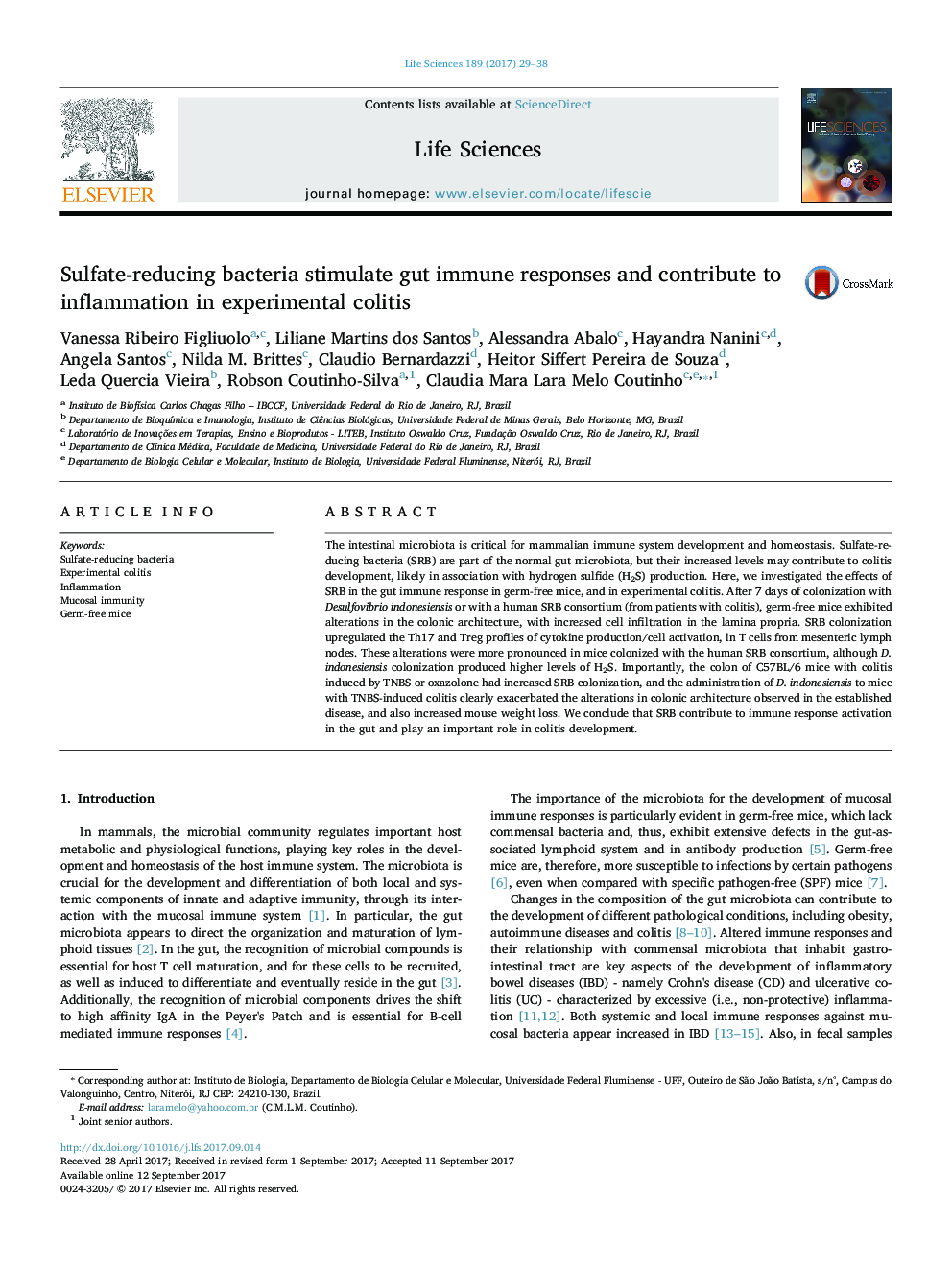| Article ID | Journal | Published Year | Pages | File Type |
|---|---|---|---|---|
| 5556792 | Life Sciences | 2017 | 10 Pages |
The intestinal microbiota is critical for mammalian immune system development and homeostasis. Sulfate-reducing bacteria (SRB) are part of the normal gut microbiota, but their increased levels may contribute to colitis development, likely in association with hydrogen sulfide (H2S) production. Here, we investigated the effects of SRB in the gut immune response in germ-free mice, and in experimental colitis. After 7Â days of colonization with Desulfovibrio indonesiensis or with a human SRB consortium (from patients with colitis), germ-free mice exhibited alterations in the colonic architecture, with increased cell infiltration in the lamina propria. SRB colonization upregulated the Th17 and Treg profiles of cytokine production/cell activation, in T cells from mesenteric lymph nodes. These alterations were more pronounced in mice colonized with the human SRB consortium, although D. indonesiensis colonization produced higher levels of H2S. Importantly, the colon of C57BL/6 mice with colitis induced by TNBS or oxazolone had increased SRB colonization, and the administration of D. indonesiensis to mice with TNBS-induced colitis clearly exacerbated the alterations in colonic architecture observed in the established disease, and also increased mouse weight loss. We conclude that SRB contribute to immune response activation in the gut and play an important role in colitis development.
